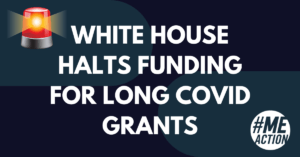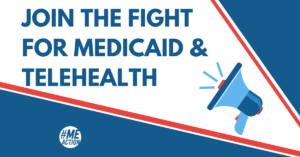FOR IMMEDIATE RELEASE: Monday, September 12, 2016
CONTACT: Brett Abrams | +1-516-841-1105 | brett@unbendablemedia.com
Experts, Advocates and Patients Call Release of UK QMUL PACE Data “A Gamechanging Win for People with Myalgic Encephalomyelitis / Chronic Fatigue Syndrome”
Last week, Queen Mary University of London (QMUL) released data from its controversial PACE study on myalgic encephalomyelitis / chronic fatigue syndrome. The data release came after five years of pressure from patients and scientists who questioned the study’s claim that graded exercise and cognitive behavioral therapy were effective treatments for patients with myalgic encephalomyelitis / chronic fatigue syndrome (ME/CFS).
The PACE trial has attracted mounting criticism in recent months from scientists, including a group of over 40 who said in an open letter to The Lancet, the journal that published the original paper, that PACE’s flaws “have no place in published research”. In August, a UK tribunal ordered the release. The following experts and advocates in the US and the UK responded to the release of the data.
Professor Jonathan Edwards of University College London, one of the letter’s signatories said:
“The new analysis of the PACE trial appears to confirm the consensus view that CBT and graded exercise therapy were associated with a mild placebo effect.”
Dr. David Tuller, a journalist and public-health expert at the University of California-Berkeley who had been publicly critical of the trial added:
“Let’s be clear. These findings are really much worse than those presented in published, ‘peer-reviewed’ papers. If these were the best findings for $8 million, then PACE really will not survive legitimate scrutiny.”
Jennifer Brea, co-founder of #MEAction explained:
“The release of data from Queen Mary University of London’s PACE study into Myalgic Encephalomyelitis proves that graded exercise and cognitive behavioral therapy were never effective treatments for those suffering from ME. The more than 1 million people that suffer from ME in the United States need real research into the causes of and potential treatments for this horrific disease, and we hope that the release of this data proves once and for all that this research is long overdue.”
LA Cooper, of #MEAction Network in the United Kingdom added:
“We are thrilled with the long-awaited outcome. The only way forward to ensure we better understand this disease and discover adequate treatments is through strong, trustworthy science. We believe that the release of the data is a huge step in the right direction.”
An analysis published Wednesday by the trial’s own authors states that just 21% of patients found improvement with graded exercise, as compared to the 61% they originally reported in The Lancet. Critics believe that when the data is independently analyzed, it will show that exercise has no positive benefit. Graded exercise is a commonly prescribed treatment for ME/CFS but many patients and researchers state that it can make symptoms worse, sometimes permanently.
A petition led by #MEAction with over 12,000 signatures was presented at the tribunal as evidence of the level of public interest in data release. Over two dozen patients’ charities in 14 countries called on PACE’s authors to release their data for independent reanalysis. Queen Mary University spent over £200,000 on legal fees on a tribunal appeal to try to prevent the data’s release.
For more information about Myalgic Encephalomyelitis: http://meaction.net/about/what-is-me/
For more information about the PACE trial:
http://meaction.net/2016/09/09/qmul-releases-pace-data/
For more information, or to speak with someone from #MEAction about the disease or the PACE trial, please contact Brett Abrams at +1-516-841-1105 or by email at brett@unbendablemedia.com.
# # # # #




